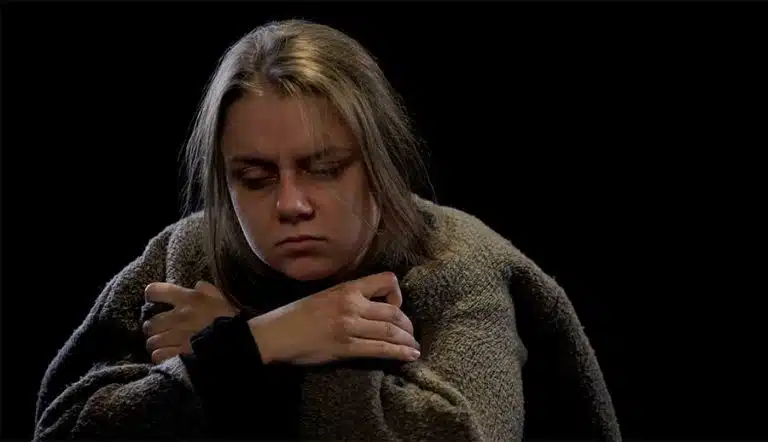Does Route Of Administration (ROA) Affect Drug Withdrawal?

Drug abuse often leads to physical dependence. When you’re physically dependent on a drug, your body needs it to function normally. If you stop using it, you will likely experience withdrawal symptoms, which range from mild nausea to severe seizures, depending on your body and the drug you used.
Some people claim that withdrawal is also affected by the way you take the drug, also known as the route of administration (ROA).
Common Routes Of Administration (ROA)
There are many different routes of administration among drug users. The most common routes include:
Oral Route
The oral route involves swallowing a drug. In most cases, the drug will be in pill, capsule, or powder form. Some of the most commonly swallowed drugs include opioids, benzodiazepines, amphetamines, and ecstasy (MDMA).
Nasal Route
The nasal route involves crushing a drug into a powder and snorting it through the nose. Some of the most commonly snorted drugs include cocaine and methamphetamine.
Smoking Route
The smoking route involves heating a drug in a pipe, cigarette, or other smoking device and inhaling the resulting vapors. Some of the most commonly smoked drugs include marijuana, nicotine, heroin, and cocaine.
Injection Route
The injection route involves using a needle and syringe to insert a drug into a vein. The most commonly injected drug is heroin. Other drugs that can be injected include cocaine, methamphetamine, amphetamines, and benzodiazepines.
Does ROA Affect Drug Withdrawal?
Studies suggest that route of administration may affect drug withdrawal.
In particular, withdrawal symptoms may be more severe for people who inject or smoke drugs. That’s because these routes deliver the drug to your body more quickly than the oral and nasal routes. The rapid onset of effects may raise your risk of physical dependence and withdrawal.
Does Injection Cause The Most Severe Withdrawal?
Some research also indicates that the injection route may cause the most severe withdrawal of all routes.
In a study of heroin users, people who injected the drug faced a longer and more intense withdrawal period than people who smoked it. In fact, smokers could consume five times the amount of heroin as injectors and have similar withdrawal effects.
This is probably because injection is the route with the highest bioavailability. Bioavailability is the rate at which a drug gets absorbed by your body. In general, the more your body absorbs a drug, the higher your risk of physical dependence and withdrawal.
Any ROA Can Lead To Severe Withdrawal
It’s important to remember that all routes of administration can lead to severe withdrawal symptoms. Because these symptoms cause so much discomfort, they often cause people with drug addiction to relapse (start using drugs again).
In addition, some symptoms can be life-threatening when left untreated. That’s why you should avoid all forms of illicit drug use.
Other Factors That Affect Drug Withdrawal
Along with route of administration, other factors that may affect your withdrawal experience include:
- the type of drugs you used
- the amount of drugs you used
- how often you used drugs
- how long you have been using drugs
- whether you mixed drugs
- your physical and mental health
- your age
- your sex
- your environment
Drug Withdrawal Treatment Options
If you or someone you love is experiencing drug withdrawal, seek help at a medical detox program. These programs allow you to withdraw from drugs in a safe, comfortable, medically supervised environment.
During detox, doctors will closely monitor your physical and mental health as you get drugs out of your system. Often, you will be asked to slowly taper off drugs instead of quitting cold turkey. This strategy can reduce the severity of your withdrawal symptoms.
Your doctors may also treat certain symptoms by prescribing medications, such as anti-nausea medications, anticonvulsants, or antidepressants.
Addiction Treatment
After you complete detox, you may be referred to an addiction treatment program. That’s because physical dependence is often a symptom of drug addiction. Other symptoms may include:
- frequent drug cravings
- mood swings
- tolerance (needing increasingly larger or more frequent doses of a drug to feel the desired effects)
- loss of motivation
- loss of interest in activities once enjoyed
- avoidance of family and friends
Common treatments for addiction include mental health counseling, support groups, and medication-assisted treatment (MAT). In MAT, doctors prescribe medications to treat cravings and other withdrawal symptoms associated with alcohol, opioids, and nicotine.
To learn more about medical detox and addiction treatment, please reach out to an Ark Behavioral Health specialist. Our inpatient and outpatient rehab programs offer comprehensive, evidence-based care to help you or your loved one stay drug-free.
Written by Ark Behavioral Health Editorial Team
©2024 Ark National Holdings, LLC. | All Rights Reserved.
This page does not provide medical advice.
Addiction - The influence of heroin dose and route of administration on the severity of the opiate withdrawal syndrome
Centers for Disease Control and Prevention - Injection Drug Use
Drug and Alcohol Review - Route of drug use and its implications for drug effect, risk of dependence and health consequences
Questions About Treatment?
Ark Behavioral Health offers 100% confidential substance abuse assessment and treatment placement tailored to your individual needs. Achieve long-term recovery.
100% confidential. We respect your privacy.
Prefer Texting?
Our friendly support team is here to chat 24/7. Opt out any time.







 Learn More
Learn More








